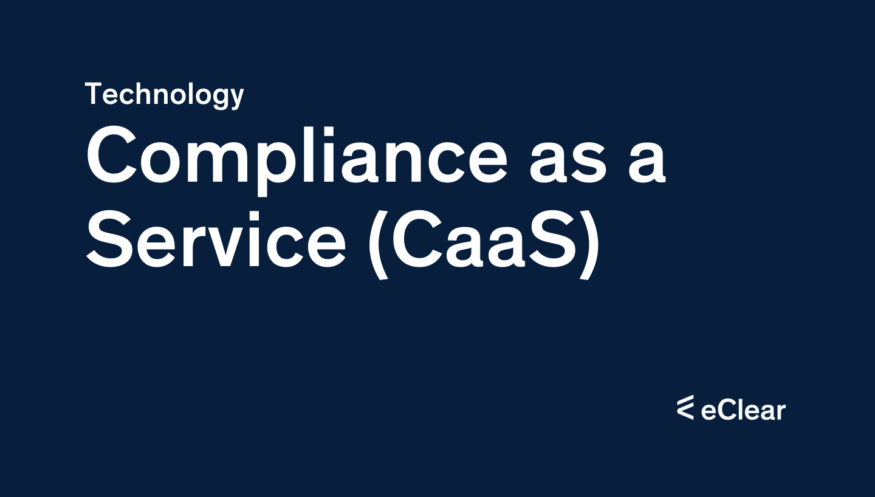In a digital age where adaptation is crucial, businesses are constantly navigating an ever-changing regulatory landscape. Non-compliance can lead to severe consequences, including fines and reputational damage. Compliance as a Service (CaaS) is a solution to simplify this complex world. CaaS, a subscription-based service, provides a comprehensive compliance solution tailored to each business’s needs. It covers everything from risk assessment to policy creation, ensuring businesses stay within legal boundaries. As companies increasingly rely on digital technologies, compliance becomes paramount. CaaS offers a cost-effective, scalable solution to regulatory compliance, making it a key tool for businesses to navigate the digital landscape confidently.
Understanding Compliance as a Service
In the digital age, businesses are constantly navigating an evolving regulatory landscape. Compliance as a Service (CaaS) is a lifeline, simplifying regulatory compliance. This subscription-based service assists companies in managing compliance obligations, combining technology, expertise, and services to provide a comprehensive solution. The importance of compliance in today’s digital landscape is paramount. As businesses rely more on digital technologies, they are subject to numerous data privacy and security regulations. Navigating this complex environment can be daunting, especially for companies that require more resources or expertise. CaaS offers a cost-effective, scalable solution to the challenge of regulatory compliance.

Key Components of CaaS
CaaS comprises several key components, each crucial in ensuring regulatory compliance. These include:
Compliance Management: This involves developing and implementing a comprehensive compliance program that aligns with a business’s specific regulatory requirements.
Risk Assessment: CaaS providers conduct regular risk assessments to identify potential compliance risks and develop mitigation strategies.
Audit Management: This includes the management of internal and external audits to ensure compliance with regulatory standards.
Policy Management: CaaS providers also assist with developing, implementing, and managing compliance policies.
These components work together to provide a holistic approach to regulatory compliance, reducing non-compliance risk and allowing businesses to focus on their core operations. As regulations continue to evolve, the role of CaaS in helping companies to navigate the digital landscape is becoming increasingly important.
The Need for Compliance as a Service
Compliance as a Service (CaaS) is a cloud-based solution offering businesses a comprehensive approach to managing regulatory compliance needs. This service, a subset of Business Process as a Service (BPaaS), combines software, shared services, and best-practice frameworks to help businesses navigate the complex world of regulatory compliance.
CaaS operates by first understanding a business’s compliance needs, which can vary greatly depending on the industry and specific regulations. Once these needs are identified, the CaaS provider develops a tailored compliance program that aligns with the business’s objectives and regulatory requirements. This program is then implemented and managed by the CaaS provider, who regularly monitors it to ensure ongoing compliance and makes necessary adjustments as regulations change.
In the digital age, regulatory complexities are increasing, and businesses face significant challenges in maintaining compliance. CaaS offers a solution to these challenges by providing a cost-effective, scalable solution to regulatory compliance. As the regulatory landscape continues to evolve, the demand for CaaS will likely increase, offering businesses a viable solution to regulatory compliance challenges.

Benefits of Compliance as a Service
Cost-effectiveness: One of the most significant benefits of Compliance as a Service is its cost-effectiveness. Maintaining an in-house compliance team can be expensive, especially for small and medium-sized businesses. Hiring, training, and retaining compliance professionals requires significant investment. CaaS, on the other hand, provides companies access to a team of compliance experts discounted the cost. According to a study by Deloitte, businesses that use CaaS can reduce their compliance costs by up to 50%.
Scalability: CaaS also offers scalability, allowing businesses to adapt their compliance efforts as they grow and their needs change. This benefits businesses in fast-growing industries, where regulatory requirements can change rapidly. With CaaS, companies can quickly scale their compliance efforts to meet new regulations without significant upfront investment.
Expertise: With CaaS, businesses can access a team of compliance experts with up-to-date knowledge of the latest regulations. This expertise is invaluable in navigating the complex regulatory landscape and ensuring compliance. A case study by IBM showed that businesses that used CaaS were 30% more likely to pass regulatory audits than those that managed compliance in-house.
Risk Mitigation: CaaS also provides initiative-taking risk mitigation, identifying potential compliance risks before they become issues. This initiative-taking approach can help businesses avoid costly fines and reputational damage associated with non-compliance. A case study by PwC found that companies that used CaaS reduced their compliance risk by up to 60%.
CaaS and Cloud Computing: A Symbiotic Relationship
Compliance as a Service (CaaS) and cloud computing are interdependent, enhancing each other’s capabilities. CaaS, as a cloud-based solution, uses the flexibility, scalability, and cost-effectiveness of cloud computing to deliver compliance services. Conversely, cloud computing benefits from CaaS by ensuring that cloud services meet regulatory standards, enhancing trust and reliability in cloud solutions.
Many cloud service providers, recognising the importance of compliance in the digital landscape, are incorporating CaaS into their offerings. For example, IBM Cloud has announced new capabilities for regulatory compliance, aiming to provide businesses with the tools they need to meet their compliance obligations while leveraging the power of the cloud.
One of the critical roles of CaaS is enhancing data security in the cloud. CaaS helps safeguard sensitive data stored in the cloud by ensuring compliance with data protection regulations. This is particularly important given the increasing prevalence of cyber threats and the growing emphasis on data privacy.
Choosing a CaaS Provider: A Strategic Decision
Choosing the proper Compliance as a Service provider is a strategic decision that can significantly impact a business’s regulatory compliance efforts. Factors to consider when selecting a CaaS provider include expertise, reputation, and cost. The provider should have a proven history of managing compliance in your industry and a reputation for reliability and customer service. Cost is also a crucial factor, with businesses needing to balance the cost of the service against the potential cost savings from reduced compliance risks and efficiencies.
Questions to Ask Potential Providers
When evaluating potential CaaS providers, businesses should ask a series of questions to assess their suitability. These might include:
- What is your experience in managing compliance in my industry?
- How do you stay up to date with changing regulations?
- How do you ensure the security of my data?
- What is your pricing model, and how does it compare to other providers?
- Can you provide references from other clients in my industry?
The Role of CaaS in Enhancing Data Security in the Cloud
CaaS plays a crucial role in enhancing data security in the cloud. By ensuring compliance with data protection regulations, CaaS helps to safeguard sensitive data stored in the cloud. This is particularly important given the increasing prevalence of cyber threats and the growing emphasis on data privacy.
The Future of Compliance as a Service
The digital business landscape is rapidly evolving. Compliance as a Service (CaaS) is emerging as a critical player in this transformation. As more businesses shift their operations to the cloud, the demand for robust, scalable, and efficient compliance solutions becomes increasingly apparent. According to MarketsandMarkets, the global CaaS market is projected to grow from $5.2 billion in 2020 to $11.8 billion by 2025, with a Compound Annual Growth Rate (CAGR) of 17.7%.
Several key trends are expected to shape the CaaS market. These include the increased adoption of digital technologies such as artificial intelligence (AI) and machine learning (ML) in compliance management, which can help automate processes, reduce human error, and boost efficiency. Additionally, sectors like healthcare and finance, subject to stringent compliance requirements, show a growing demand for CaaS solutions. The ongoing shift towards remote work due to the COVID-19 pandemic will likely fuel demand for CaaS as businesses strive to ensure compliance in a distributed work environment.
The rapid evolution of regulatory expectations will also influence the future of CaaS. According to a report by KPMG, these expectations, particularly those related to the measurement, monitoring, and mitigation of various risks, including climate-related financial risks, are changing rapidly. As regulations become more complex and dynamic, businesses will require more advanced and flexible CaaS solutions. This could lead to developing more sophisticated CaaS offerings, incorporating advanced technologies such as AI and ML. Furthermore, as regulations become increasingly global, there will be a growing need for CaaS solutions to manage compliance across multiple jurisdictions. This could drive the growth of global CaaS providers and the development of more internationalised CaaS solutions.
Conclusion
Compliance as a Service (CaaS) has become a vital tool for businesses navigating the complex digital landscape. Offering a cloud-based solution for regulatory compliance, CaaS provides benefits such as cost-effectiveness, scalability, and access to expertise. A PwC study highlights those businesses using CaaS reduced their compliance risk by up to 60%.
The importance of CaaS is set to grow, with predicted trends in the CaaS market and the evolving regulatory landscape. Businesses should consider CaaS as a critical part of their compliance strategy. It can help companies meet current compliance requirements more effectively and prepare for the future by providing a flexible and scalable solution that can adapt to changing regulations.
In conclusion, CaaS significantly advances how businesses manage regulatory compliance. By adopting CaaS, companies can navigate today’s regulatory complexities and prepare for tomorrow’s challenges.








